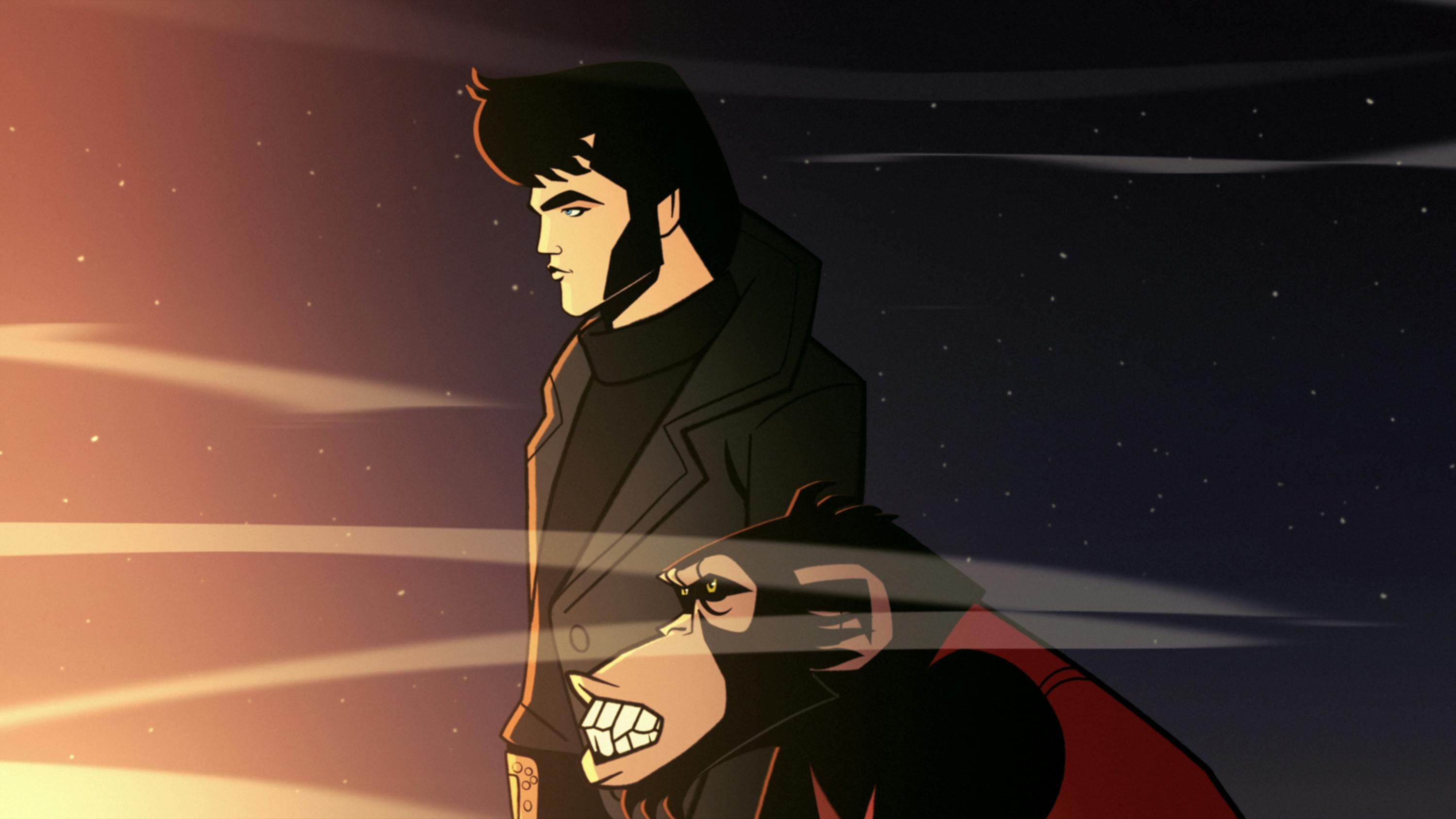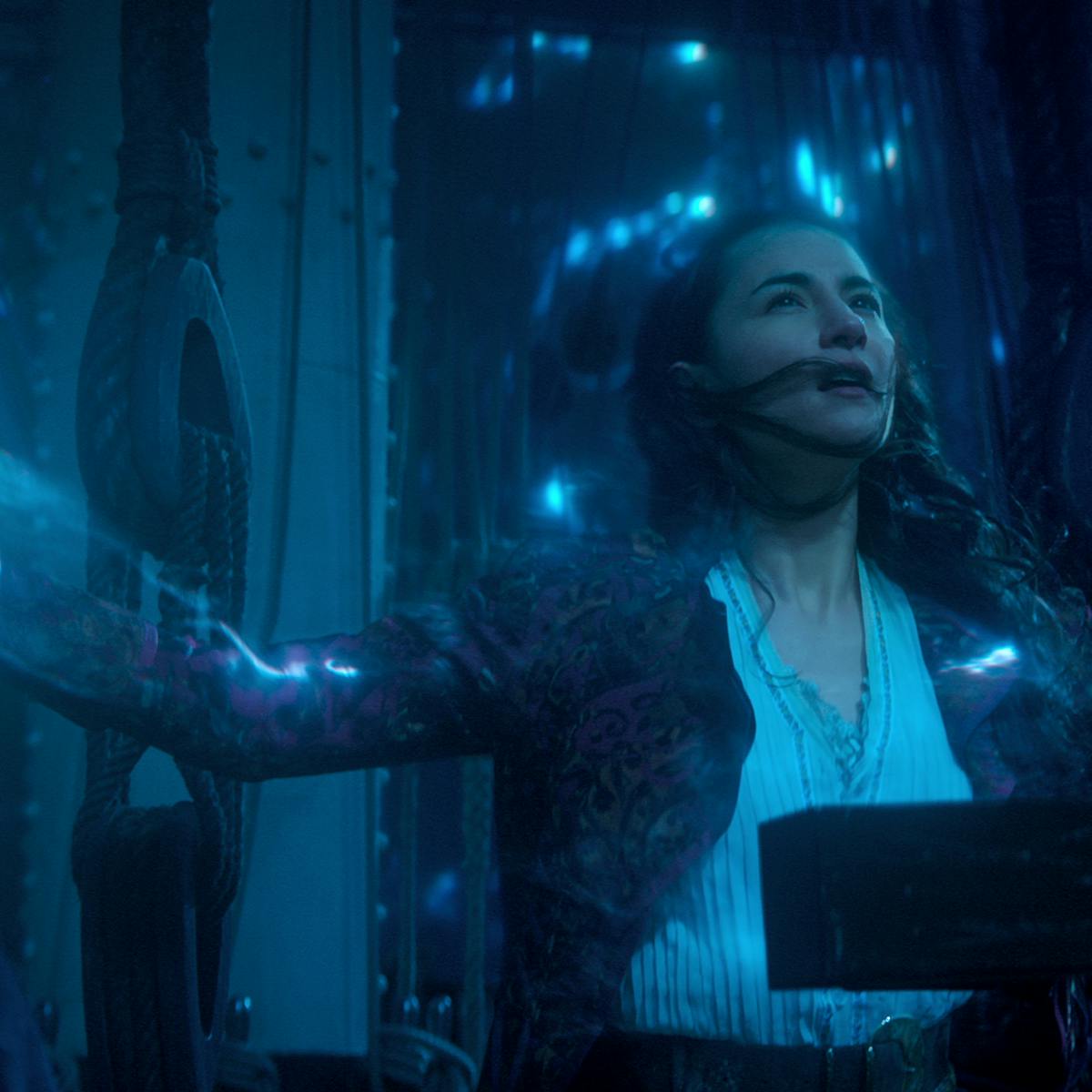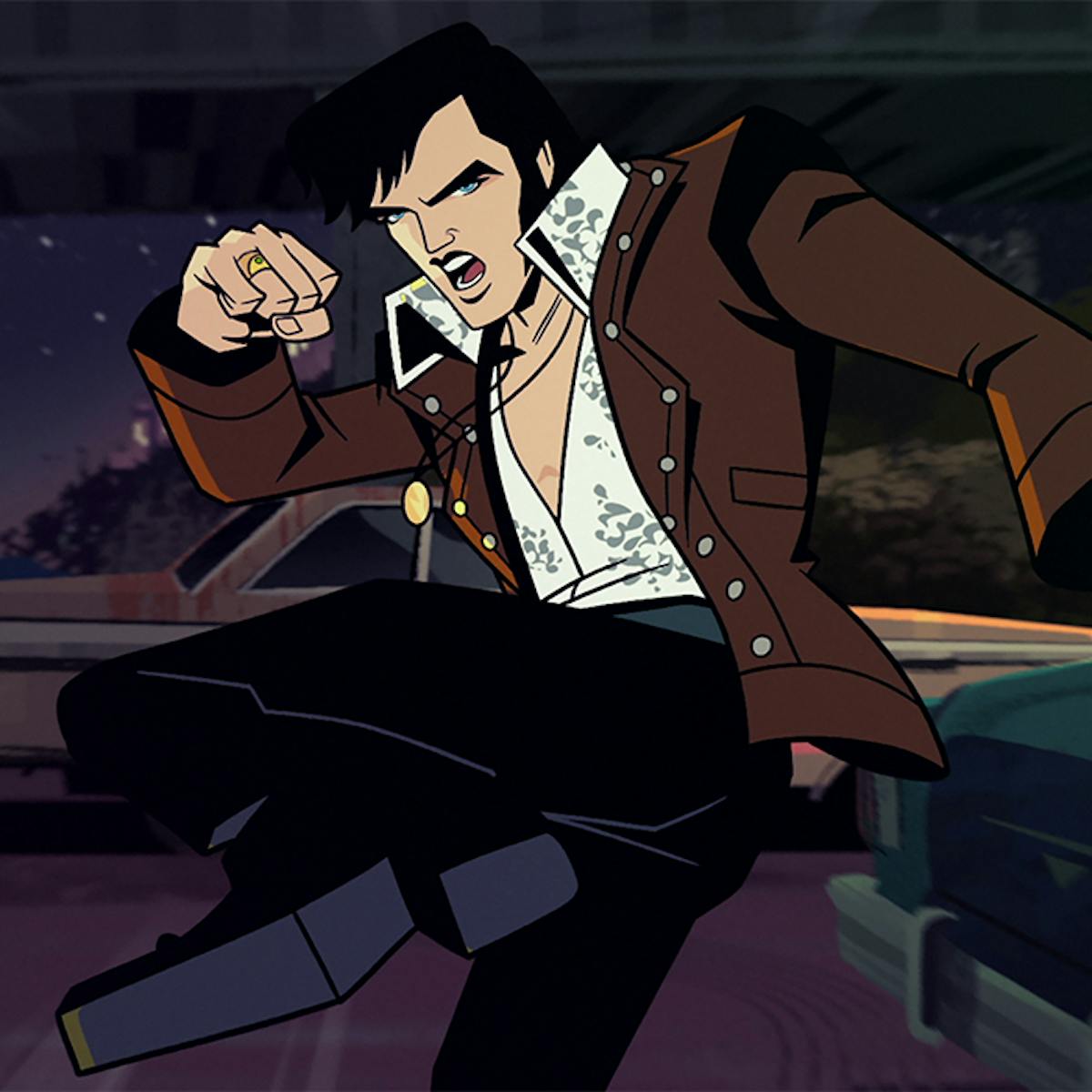Fact and fiction collide in this animated romp that envisions Elvis Presley as a government agent.
Few artists can claim the multi-medium impact of Elvis Presley — as a musician, actor, and style icon, he brought unrivaled charm and dynamism, bridging communities and changing the industry indelibly. In the not-so-parallel universe of Agent Elvis, the animated series created by Elvis’s ex-wife, Priscilla Presley, and rock singer John Eddie, the multihyphenate adds “secret agent” to his resume.
Although fictional, this double life-leading version of Elvis, voiced by Matthew McConaughey, draws inspiration from the King of Rock ’n’ Roll’s real life. “There was a famous photo of Elvis with Richard Nixon where he was offering his services to be a D.E.A. agent,” explains Eddie. “That was the basis of the idea [for] making this show.”
While Elvis was better known for his love ballads and swoon-worthy dance moves, the crime-fighting persona at the heart of Agent Elvis shouldn’t come as a surprise to those who knew him best. “Priscilla told me a story where they were driving somewhere, and there was a fight going on at a gas station, and Elvis jumped out and the fight stopped,” says Eddie. Priscilla, who also stars as herself in the series, continues: “[He] saw a fight going on and he said, ‘Damn it.’ When he got out, he said, ‘Whoa, wait a minute.’ They both stopped and looked at him. It stopped the fight absolutely. They wanted autographs and became friends after.”
For Eddie, an established musician in his own right, making Agent Elvis was a life-long dream. “When I was a kid, I wanted to be the next Elvis Presley. I ended up being me,” Eddie jokes. “And now I have a show [about] Elvis Presley. Man, it worked out all right.” Mike Arnold (Archer), showrunner and head writer on the series, also grew up listening to the King: “My first introduction to music was Elvis. That’s what my parents played in my house all day long. He was the first global icon.” Facing the daunting task of writing such a mythic figure, Arnold and the other writers devised their own vocabulary for the eponymous character and the show’s towering roster of real-life characters, including Howard Hughes (Jason Mantzoukas), Charles Manson (Fred Armisen), President Nixon (Gary Cole), Paul McCartney (Simon Pegg), and Stanley Kubrick (Dee Bradley Baker).
Following a screening of their new series at the Tudum Theater in Hollywood, Eddie, Priscilla, and Arnold joined writer and producer Kary Antholis, who worked with Priscilla on the documentary Elvis Presley: The Searcher, to discuss the genesis of the project, how they assembled the animated show’s enviable voice cast, and their visual inspirations for the action-adventure tale.
An edited version of the conversation follows.
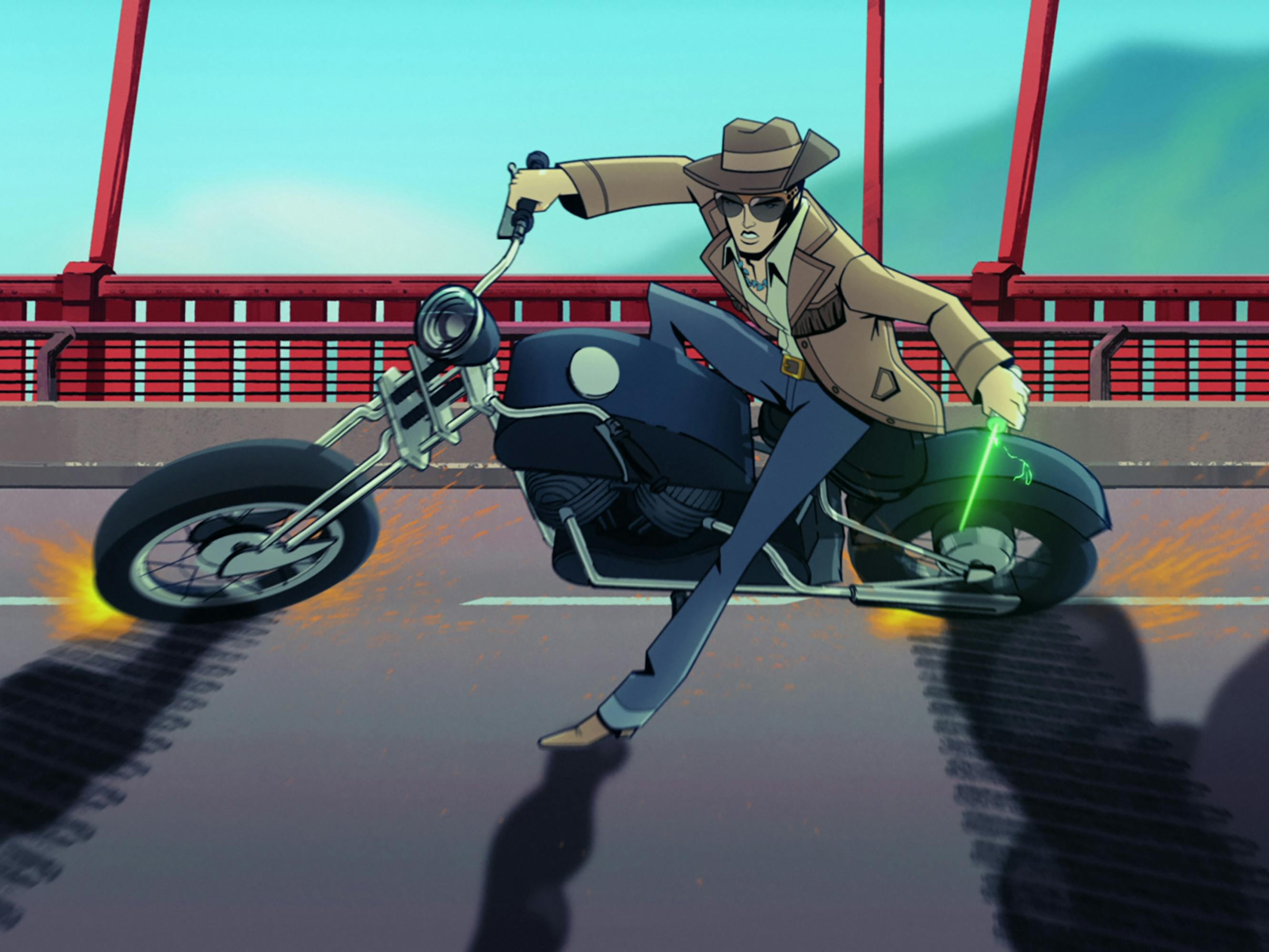
Elvis Presley (Matthew McConaughey)
Kary Antholis: When working with you, Priscilla, on The Searcher, I came to learn that Elvis had an oblique sense of humor. And based on the episodes I’ve seen so far, the series seems driven by that same sense of humor as well as his lifelong fascination with superheroes and comic books and his fantasies of fighting crime and evil. Is that an accurate read on the Elvis legacy that informs this show?
Priscilla Presley: Absolutely. It’s true. Elvis had kind of a sick sense of humor, to be honest with you. His grandmother lived at Graceland, and she didn’t have many teeth. She would talk with chewing tobacco in the back of her mouth. And Elvis would say, “Grandma, spit that stuff out. That’s not good for you; this is not very ladylike.” And she would go, “Oh, shut up. You don’t know what a lady’s like.” The two of them had a great sense of humor and played a lot with each other.
John Eddie: There are so many things that we could use as springboards for story ideas that were based in Elvis’s life. He had that famous speech when he won the Jaycees Ten Outstanding Young Men award — he said he always wanted to be the hero in a comic book. That was why we made it animated.
Matthew McConaughey is so good in this; it’s sort of transformational. How did you know that he’d be the right person to depict Elvis here?
Priscilla: He’s got a great voice, and he’s got that deep, southern voice. We discussed other people, but Matthew just kept coming to mind, knowing that he’s such a professional and that he would do a great job in speaking for Elvis. I loved him.
Mike Arnold: With Elvis, we were always thinking that he’s so quintessentially cool, right? I mean, who doesn’t want to be as cool as Elvis? Who doesn’t want to be as cool as Matthew McConaughey?
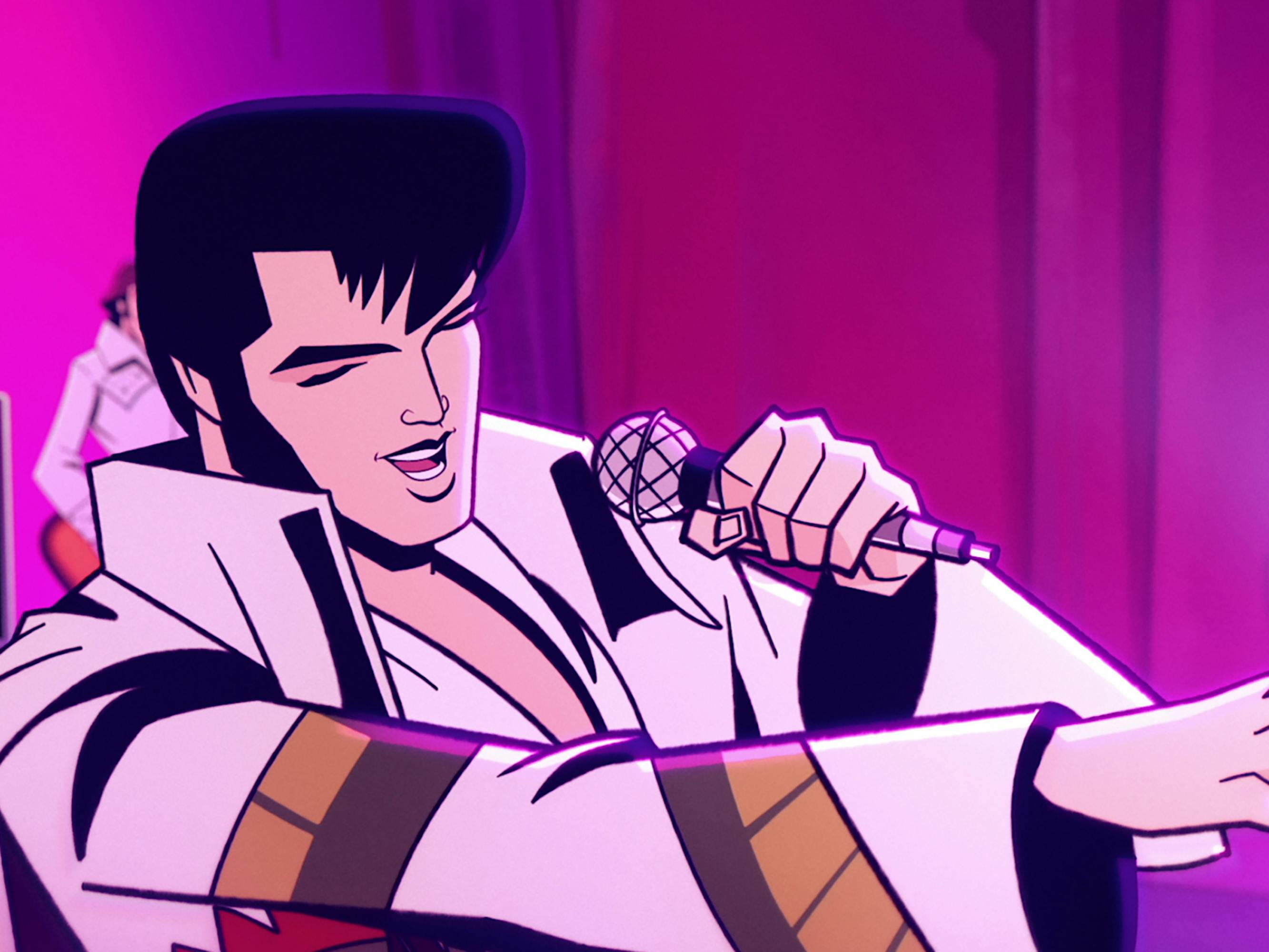
Elvis Presley (Matthew McConaughey)
The look of this show is incredible. I see hints of Once Upon a Time . . . in Hollywood, there are throwbacks to [1970 concert documentary] Elvis: That’s the Way It Is. Can you tell us about working with Sony Animation to develop the look of the series?
Eddie: When we talked about our ideas for the show, we used a lot of 70s and 60s movies. We had grain on the images, the colors that we used. And, when we first pitched it to Sony, that was it. We said: “Elvis in an animated show fighting crime, as if directed by Quentin Tarantino.”
I noticed that John Varvatos did the design of Elvis’s wardrobe in the animation [and served as a consulting producer]. How did that relationship come about?
Priscilla: I’ve always loved John Varvatos. I mean, his taste, his look. If Elvis were here today, he would definitely be wearing John Varvatos’s clothes. And John actually came to Memphis and we had all the books out on Elvis’s clothes by Bill Belew, who was his designer for the jumpsuits and some actual suits that he would wear out in public. [John] was fascinated, and he was just in awe.
Arnold: It was wild seeing Elvis’s clothing archives. The one thing I walked away with, other than being blown away, was that those jumpsuits are heavy. I mean, if I had to put one of those on, I’d be crying and would need to go take a nap; I mean, it’s amazing.
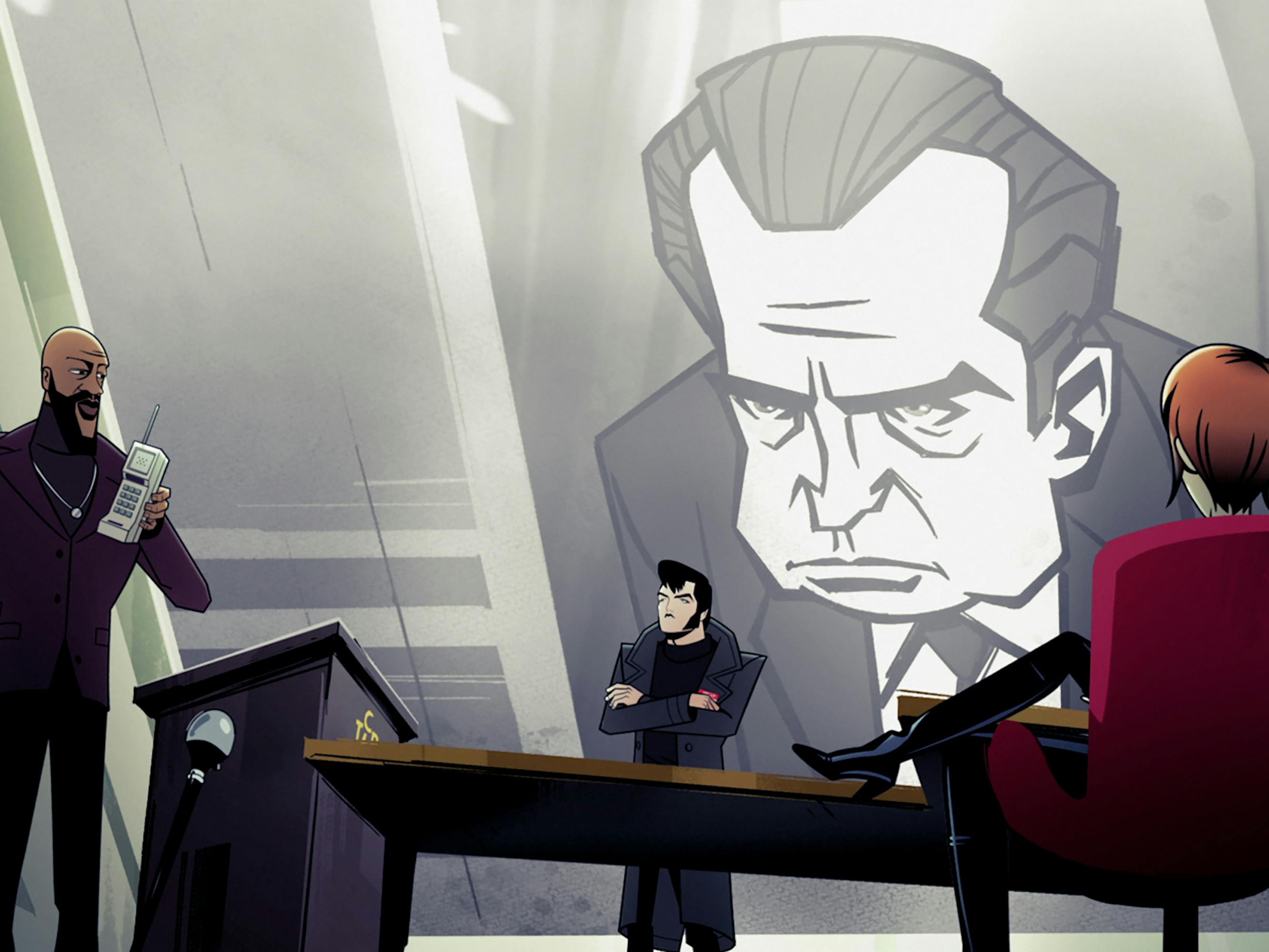
The Commander (Don Cheadle), Elvis Presley (Matthew McConaughey), and Cece (Kaitlin Olson)
We see clips of Star Trek and iconic 60s and 70s films. And we also get a sense of spy shows like Mission Impossible and I Spy. But there’s also this very modern sensibility. Tell me about building the mythology of the show.
Arnold: One of the most fun things was what we called “the Forrest Gump of it all,” which is Elvis walking through history, hitting on these fun moments in time, impacting them. And it wasn’t just selecting those moments and making an episode out of that, but also from episode to episode, we made a very deliberate attempt to create our own vocabulary for each character. Every character has their own voice, and they’re all hopefully singing together in their own weird way.
What was the most memorable experience in working on this show?
Eddie: We first started talking about this idea in 2012. It was weird because, [for] Priscilla, this is an alternate reality version of her life. Something that’s so important is that she let the writers push the envelope and get edgy. So we do things, but we’ve always tried to stay true to Priscilla’s version of Elvis, with the knowledge that we were trying to make a crazy show. Thank you for letting us do that.
Priscilla: What I love so much about it is introducing Elvis to the youth today. And I know that this is a dream come true for Elvis because this is really what he wanted to do. He wanted to be a federal agent. And I’ve always wanted to give Elvis what he wanted and never really quite made it.
Watch the full conversation between John Eddie, Priscilla Presley, Mike Arnold, and Kary Antholis at the Tudum Theater below.
John Eddie, Priscilla Presley, Mike Arnold, and Kary Antholis at the Tudum Theater.
